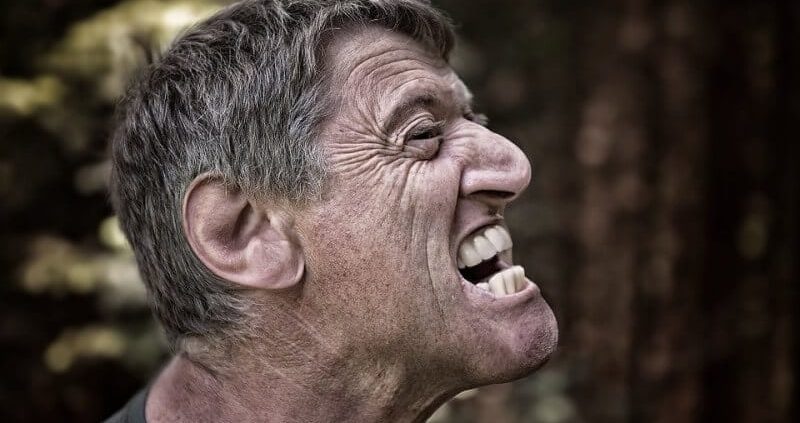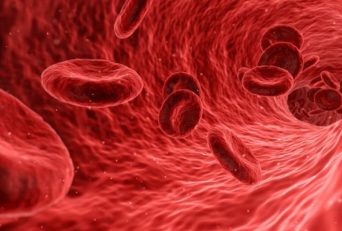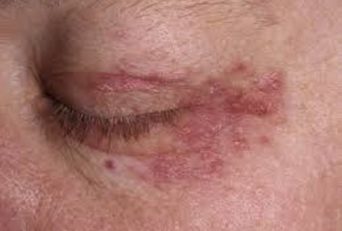If you are searching for a natural way to get rid of Elephantiasis, then it will be your last quest. The article will be entailing all the causes and symptoms of elephantiasis. How is it diagnosed?
What are the miscellaneous prevention measures and natural remedies? Moreover, some awesome home remedies prove to be very promising during the treatment. The article also targets the audience who is curious to get some advice on precautionary measures.
Table of Contents
What Is Elephantiasis?
Have you ever seen a person whose legs swell up like that of an elephant? This is because of Elephantiasis.As the name reveals, in this disease limbs swell so immensely that they mimic an elephant’s leg in everything, like size, color, and even texture.
This parasitic infection is characterized by thickening of the skin and under skin tissue resulting in enlarged and swollen limbs.External genitals, both in males and females, are also affected. So, apart from making one physically disable it also makes one’s personal, social, and economic life paralyzed.
Elephantiasis is rare in some areas of the world while it is endemic in others. The infection is most established in tropical and subtropical regions.
Do you know that millions of people in tropical countries like Africa, India, Sri Lanka, Bangladesh, etc. had already a prey to this disease?What is the reason behind? Why the body parts swell?
Actually, Elephantiasis happens due to the filarial parasites which spread through mosquito bites to humans.Lymphatic Filariasis is what is known as Elephantiasis to us. It takes a long period and happens due to the recurrence of the infection.
This infection gets acquired in the childhood and cause concealed damages to the lymphatic system of the body. However, it can attack men or women of any age.
Functioning as an element of the immune system, the lymphatic system helps to guard our body against infections and diseases.
What happens biologically in Elephantiasis is that there is a hindrance in the lymphatic system, which results in the accumulation of lymph in the pretentious areas.
Such obstruction results in the enormous swelling and enlargement characteristics of elephantiasis.
Some Common Names Of Elephantiasis
- Elephant Leg
- Barbados Leg
- Mal De Cayenne
- Morbus Hercules
- Myelolymphangioma
Home Remedies For Get Rid Of Elephantiasis
Vitamin A rich foods like sweet potatoes, carrots, apricots, etc. are very beneficial in Elephantiasis. There are some herbs which are just miraculous.
1. Cloves
The enzymes in cloves help in killing all types of immature parasites and adequately remove them from the blood flow.Take full cloves. Grind them for the best results. Add the ground cloves to tea or coffee as per your choice. You can also use full cloves in place of ground ones.
2. Agar Wood
Make a paste of Agarwood powder by mixing it with water and apply on affected areas continuously for 20 minutes. Iterate this process twice a day.
3. Black Walnut Oil
The compounds inside the black walnut oil reduce the number of immature parasites entering the blood flow.Add three drops of Black Walnut Oil in a cup of warm water and drink this solution two times daily. Do this for at least six weeks; you will see amazing results.
4. Butterfly Pea
Make a paste of the roots with a small quantity of water. Take a pinch of paste with Luke warm water.Seeds can also be utilized in place of roots. Powder the mixture of dry ginger and the seeds of Butterfly pea and mix rock salt in the powder. Again, take a pinch with lukewarm water two times in a day.
5. Horse Gram
First, make a powder of horse gram and sand of ant’s hills. Also, mix egg white in the grind. Apply the paste on the affected areas.
6. Brahmi Leaves
Apply the paste of Brahmi leaves on the affected areas relentlessly for half an hour. Iterate the process twice a day.
7. Blend Oil And Bhringraj
Blend Sesame oil (or Til ka tel) and Eclipta Alba (or Bhringraj) in the ratio 1:2 and apply on affected parts.
8. Mixture Of Herbs
Prepare a mixture using Marigold flower, Cleavers leaves and roots of Pokeweed, Blue Flag, Yellow Dock and Echinacea and take it twice daily.
9. Mixture Of Seeds
Pulverize Castor, Mustard, Damiana and Horseradish in unison and apply on affected parts.
10. Cow’s Urine
Add cow’s urine in a mixture containing giant hogweed, ginger powder and white mustard (take 10 gm of each). Make a mucilage and apply it on the feet for improved results.
11. Himalayan Cedar
Himalayan Cedar has antifungal, antiseptic, and anti-inflammatory properties. These properties are mainly found in Himalayan Cedar Oil.
Apply the Himalayan cedar oil regularly on the affected area to get optimal relief from Elephantiasis.
12. Neem Oil
Neem oil is used for ages to cure many skin issues. The oil has antibacterial, anti-fungal, and anti-inflammatory properties that can reduce swelling significantly.
For the home, remedy try dipping your foot in a neem soak. T prepare a neem soak take around 40-50 leaves of neem and boil it in water for good five minutes. Additionally, prefer applying neem oil on the affected area twice a day.
13. Banana Stem Juice
The banana stem has several nutrients and mineral that can reduce muscle and tissue swelling and at the same time help you get rid of any developing infections.
For elephantiasis, drink 15-20ml of banana stem juice regularly.
14. Cow Ghee
The clarified butter or ghee from cow is an excellent anti-inflammatory agent. it was used long ago by may ethnic tribes to get rid of swelling from multiple diseases.Massage gently with cow ghee on your foot daily until you get desirable results.
15. Betel Leaves
Betel leaves are an excellent analgesic and healing agent. Traditionally, it was used to cure skin diseases and insect bites.
For curing elephantiasis, wrap three to four betel leaves with a cotton cloth on your foot and leave it overnight. In addition to it, consume 3 beetel leaves powder along with lukewarm daily.
16. Papaya
Papaya can effectively compress up any swollen area due to the presence of enzymes and certain compounds in it.For elephantiasis, take few papaya leaves heat them and then tie them up with a cloth on the affected area.
17. Turmeric Powder
Turmeric powder is an antiseptic, healing, anti-bacterial, and anti-inflammatory agent. Since traditional times it is used as an effective home remedy to cure elephantiasis.
For curing elephantiasis, make a paste of turmeric powder with vinegar and water. apply the paste all over your feet and leave it overnight. do it regularly for optimal relief.
18. Spanish Jasmine Flower
This flower is widely used in Ayurvedic medicine because of its medicinal properties.
For elephantiasis, mix Spanish jasmine oil with lemon juice and apply it to the affected area. If you can’t buy oil make a paste of the petal of spanish jasmine flower mix it with lemon juice and apply over the affected area.
19. Mixed Spices Paste
Take 10 peppercorns, 10g cumin seeds, 10g gooseberries, and 10g turmeric powder. Mix all the ingredients together and prepare a powder from it. Add little water and make a paste out of it. apply the paste all over the affected area to get ultimate relief. prefer doing twice a day and overnight for best results.
20. Mustard And Ginger Paste
Mustard and ginger both have the power to reduce swelling and prevent infections.
Grind 20g or mustard and 20 gram of ginger together. Add little water to make a paste out of it. Apply the paste over the affected areas for good 30 minutes to get relief from elephantiasis symptoms.
Sign & Symptoms Of Elephantiasis
Initial allergic symptoms of Elephantiasis may include episodes of fever with shaking chills (just like malaria), sweating, headaches, body pain, bone and joint pain, vomiting, abscesses, skin ulcers, tiredness, a usual feeling of ill health (called malaise) and red streaks along the arm or leg also may arise.
Abscesses can occur in the lymph nodes or the lymphatic vessels or even at the skin. What is more embarrassing is that such episodes may keep recurring to steer to long-term transformations.
What is more embarrassing is that such episodes may keep recurring to steer to long-term transformations.
Even this is not the climax. Once the parasites invade the lymphatic system of the body, more symptoms pop up and that too dreadful this time due to their attack on lymph glands.
Lymphatic glands or lymph nodes found in the neck, arms, pelvis, below the knees and some other places swell up. An arm or leg may swell to several times its routine size just reflecting the round and thick appearance of an elephant’s leg.
Moreover, the skin of the affected areas habitually becomes dry, thickened, pebbly-type and may become pitted, darkened and ulcerated( a condition termed as hyperkeratosis).
Elephantiasis, in all, involves three conditions; namely, asymptomatic, acute, and chronic conditions.
Asymptomatic, showing no external signs of infection occur in majority cases. These asymptomatic infections mutilate the lymphatic system and the kidneys as well as amend the immune system of the body.
Acute episodes of inflammation in the skin, lymph nodes, and lymphatic vessels frequently complement the chronic elephantiasis or lymphoedema. Sometimes these are caused by the immune response of the body to the parasite.
However, most of the time it is due to the bacterial skin infection where normal defenses of the body are somewhat lost because of the rudimentary lymphatic damage.
Under chronic conditions, results are lymphoedema (or tissue swelling) and hydrocele (scrotal swelling). Involvement of breasts and external genital organs is common.
In males, there may be an augmentation of the scrotum, and the penis may get retracted under the skin which turns out to be thickened and nonelastic. Thickening of spermatic cords is also possible. Affected males may experience pain and a burning sensation.
The external parts of the female genital organs (or vulva) are prone to be affected by elephantiasis too.Thickened mass covered by ulcerated skin may produce between the thighs and may be accompanied by inflammation in lymph nodes (lymphadenopathy) of the legs. Enlargement of breasts is also found in some women.
What Cause Elephantiasis?
There can be numerous causes behind Elephantiasis.
1. Filarial Parasites
In the majority of cases, infection is because of parasites which belong to the family Filariodidea and are cataloged as nematodes (meaning roundworms).
Examples of such nematodes include Wuchereria bancrofti, Brugia timori, and Brugia malayi.
Lymphatic Filariasis is mediated through different mosquitoes, for example, the Culex mosquito that is predominant is urban and semi-urban areas; the Anopheles mosquito in rural areas, and Aedes, in endemic islands in the Pacific.
Life cycle of a filarial parasite
When the mosquito feeds on human blood, filarial parasites, which are in their third-stage of development, pierce the wound and go inside the body. They live and grow into an adult in the lymphatic system.
The adult worms generate microfilariae (also called larvae) which circulate into the lymph and blood vessels.
When a mosquito feeds, the larvae of the parasite are taken up by a mosquito. When those larvae accomplish the third stage of development, they are introduced to a new host. Hence the cycle continues.
The harm is done by the adult worms.When they lodge in the lymphatic system of the body, they are disrupting the immune system.
More horrifying is the fact that these worms can have a life period of an average of 6-8 years.So, they produce millions of microfilariae during their life that circulate in the blood and prove catastrophic.
2. Bacterial Sexually Transmitted Diseases(Bacterial STDs)
Genital Elephantiasis can also be because of bacterial sexually transmitted diseases(bacterial STDs). Lymphogranuloma Venereum (LGV) and Donovanosis are the two STDs that can be the cause. The bacterium impairs the lymphatic system which results in lymphatic obstruction in the genitals.
The bacterium impairs the lymphatic system which results in lymphatic obstruction in the genitals.
Chronic obstruction of such kind eventually terminates at genital elephantiasis. Donovanosis, on the other hand, is because of the bacterium Calymmatobacterium granulomatosis.
In this, the body’s immune system acknowledges the bacterium by causing inflammation and constriction of the lymphatic vessels.
3. Mineral Particles From The Soil Via Feet
Podoconiosis, occasionally mentioned as nonfilarial elephantiasis, is an infection caused by the absorption of tiny mineral particles from the soil via feet of barefoot individuals.
The mineral particles cause the immune system to respond in such a way that eventually inflammatory masses of nodules are formed in the lymph vessels of legs and feet.
4. Subsidiary Reasons
Apart from all above causes, Elephantiasis also happens because of some subsidiary reasons including leishmaniasis(a protozoan disease), leprosy, tuberculosis, and an iterated streptococcal disorder. It may also accompany trauma, surgery or radiation.
How Is Elephantiasis Diagnosed?
The only sure way to diagnose Elephantiasis is by uncovering the parasite itself, either the adult worms or the microfilariae.
Microscopic inspection of the blood sample is done for the presence of the microfilariae. Conventionally, the blood should be sampled at night because the microfilariae disseminate through the blood nocturnally (more numerous at night).
However, if it is necessary to perform the test during the day, the patient should be given a “provocative” medicine to provoke the microfilariae to invade the bloodstream.
Eventually, blood should be collected an hour later for microscopic examination.
However, an advanced immunodiagnostic test, based on the recognition of antigens of Wuchereria bancrofti, is highly precise and responsive.
A reward of this test is that blood samples can be taken anytime, not necessarily at night.
Microscopic examination of the blood sample may reveal microfilariae, but, there is a possibility that people who have been infected for a long time do not have microfilariae in their blood sample.
The absence of microfilariae does not confirm that the person is safe.There is still a risk of filarial parasites to be present in the form of adult worms.
In these cases, examining the urine or hydrocele liquid or conducting other tests becomes imperative.
Detecting the adult worms is not an easy job as they are present deep within the lymphatic system. Urinalysis is a good option to go for.If lymphatic filariasis is reckoned, urine should be examined macroscopically for
Chyluria results from the hindrance of lymphatic drainage.
Treatment Of Elephantiasis
There are two troubles to be dealt with; namely, Filarial infection (active) and lymphatic swelling. Treatment mainly focuses on ceasing the filarial infection.
Additional surgical treatment may be required in the cases with large swelling even after infection control. Conventional medicines, which recommend some antibiotics, are one form of treatment.
Scope Of Homeopathy
Homeopathic treatment is recommended only to reduce the prevalence of Filariasis infection. The cases with huge swelling of legs, hands, genitals, etc. do not or cannot be cured by homeopathic treatment.
Precautionary Measures Or Advice
1. Keep Mosquito Away
Use insecticides, mosquito repellent creams, protective clothing, bed nets or whatever but keep mosquito away. Close the windows before evening up to morning to prevent mosquitoes invading your house.
Wear full sleeves, full-length pants, and socks if you can. Shoes are very beneficial as they cover your feet and simultaneously avoid minerals entering through your bare foot.
2. Keep Your Surroundings Clean
No mosquito no bite. Vector control is the aim. Put effort in cleaning the breeding sites (of course, stagnant water) of mosquitoes near your homes. Avoid stagnant water in your surroundings as these pools of contaminated water are the homes of mosquitoes.
3. Keep Yourself Clean
Make a habit of washing hands, feet, and the body itself.By the way, if you are the infected one, and your skin remains clean, it will do less damage. Remember it. So it works as a remedy as well.More dirty more damage.
Apply ointment as it acts just like a safety guard against the microfilariae as it cleans the lymph nodes and skin, resulting in quick results.
4. Special Advice For Foreigners
It is a fact; true indeed, that chances of Elephantiasis are more intense in people who never have been exposed to it before than it is in the native people of tropical areas where it is a part and parcel.
The reason is obvious, i.e. better tolerance (immunity). So to avoid any mishap, it would be sensible on the part of the tourists to confer a travel physician to gain some knowledge about recent preventative measures before visiting any country.
Last advice is for infected ones, and the advice is: Be strong, don’t lose hope.
So, dear readers, keep an eye on your lifestyle to avoid any mishap. Follow these preventive measures word by word. Don’t give up.





